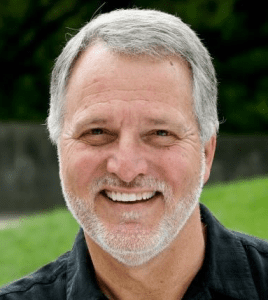Have you ever had the experience of looking into a mirror when there was also a mirror behind you? What did you see? You saw yourself receding into an infinity of reduced reflections. If we imagined that the space was instead time, you could see yourself in the vast, expansive past. You might, if you could see that far, find yourself included in Mark 3:13-19 where the Gospel writer reports Jesus’calling the Twelve into discipleship.
These verses unveil a major pivot in Jesus’ministry of ushering in the kingdom of God.
Let’s back up. In Mark 3:7-12 we have a hinge passage. It swings into the past I think at least back to 1:14-15 when Jesus came out blazing, announcing, “The kingdom of God is near!” From then until 3:7-12, Jesus’aggressive teaching and healing work skyrocketed him into being the most sought-after person in all Israel. The geographical references alone remind us that people from the north, south, east and west were hunting Jesus down for healing of diseases and demonic infestation. The green hills and dusty valleys, the roads and villages of Galilee, Judea, Jerusalem, Idumea, across the Jordan, areas surrounding Tyre and Sidon. We can realistically imagine thousands of people pressing in and grabbing at (epipiptō) Jesus, no longer waiting for him to touch them. Jesus wisely creates an escape route (a small boat) from the smothering throng (Mark 3:9). Jesus causes a social, even national tsunami of messianic furor.
This hinge text swings us into the future as Jesus recruits chosen ones to help him spread, in word and deed, the good news of the arrival of the kingdom of God.
In Mark 3:13-19, Jesus chooses the Twelve. In view of the overwhelming mission, Jesus chooses a team. Jesus is not an egomaniac who keeps all attention and authority directed at and invested in only himself. He wills to share both authority and mission with others. This is the staggering wonder of ministry. Luke reminds us that behind this strategic appointment of the Twelve was Jesus’night in prayer (Luke 6:12). The ones chosen were the ones the Father gave to Jesus (John 17:9).
I think the internal logic might be that Jesus did not want his fascinating identity (“the Son of God”) proclaimed by demons (3:11-12), but by loyal, faithful human beings who were with and knew him not only in the dizzying days of fame and in the dark and lonely hours of Gethsemane and Calvary, but also the stunning, mind-boggling days of resurrection (1 Cor. 15:5). That’s where you and I come into view. We’re in the train that continues to pray and live in the request, “Your kingdom come, your will be done on earth as it is in heaven.”
Jesus, looking into the receding reflections of the future, saw you and me. He even prayed for us as much as and just like he prayed for the Twelve (minus Judas). “My prayer is not for them alone. I pray also for those who will believe in me through their message…”(John 17:20).
Judas Iscariot, the betrayer, is a study in himself. As one of the chosen Twelve was he, too, empowered to heal the sick and cast out demons? Wouldn’t it be odd and obvious if he alone was a failure on every sortie into the villages as an emissary of Jesus and the kingdom? Would his two-by-two partner say to Jesus, “Hey, this guy Judas is a real dud. Why is he an apostle?”What if God-in-Christ is so generous to have good news spread and kingdom power unleashed even by one who didn’t, at heart, belong to him (see Phil. 1:15-17)?












